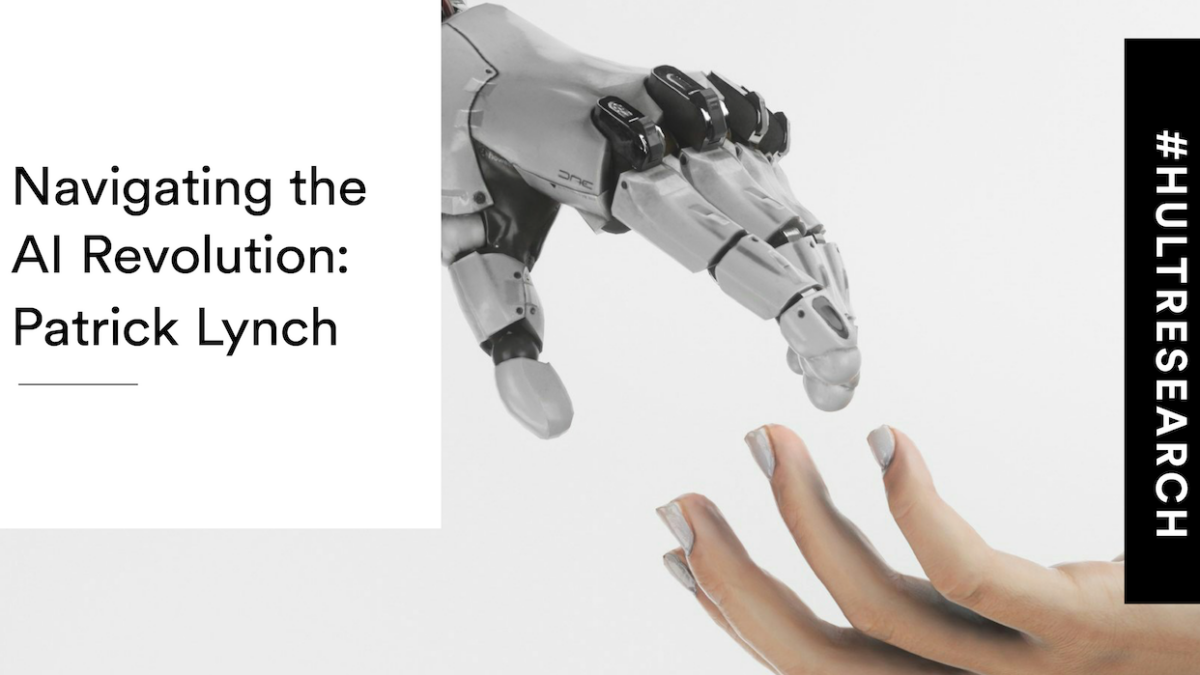Navigating the AI Revolution: How To Thrive in the Age of Augmented Intelligence
José, a seasoned accountant, walked into his office yesterday to find that the AI system recently implemented by his firm completed his entire workload in just minutes. What used to take hours of careful analysis now takes moments. While José admires the efficiency, there’s a sinking feeling in his stomach: how can he stay relevant when a tireless machine seems poised to do his job better?
As a working professional like José, you might be wondering: Will AI render my hard-earned skills obsolete, or is it the key to unlocking unprecedented professional growth?
As I shared in my recent TEDxHult talk, this question is increasingly common across industries. The real story is not just about AI taking over, it’s about AI transforming how we work, and how we can seize this transformation and grow.
When ChatGPT gained 100 million users in just 60 days, it was clear we’re no longer inching towards the “future of work” – we’re hurtling towards it at warp speed, re-shaping jobs everywhere. But before you start building that bunker in your backyard, let’s take a breath and look at the bigger picture.
The great skill reshuffle
Forget the tired narrative of “AI vs. Humans.” We’re entering an era of “AI + Humans,” and it’s a game-changer. Picture this: Lisa, a marketing whiz, used to spend her days writing product descriptions and proofreading colleagues’ work. Fast forward to today, and she’s a one-woman marketing powerhouse, leveraging AI to craft compelling copy, design visuals, and orchestrate entire campaigns. Lisa didn’t just keep her job, she expanded it.
Job expansion is the new reality for many professionals across industries. The World Economic Forum predicts that while 85 million jobs may be displaced by AI, 97 million new roles will emerge. Rather than a story about job loss, this is a story about job transformation.
The four faces of your new AI teammates
To thrive in this brave new world where you will increasingly be collaborating with AI, you need to better understand the capabilities of your new silicon sidekicks. Let’s meet the “Four Faces of AI Intelligence”:
- Mechanical Intelligence: The digital doer
This is your tireless intern, handling repetitive tasks without ever asking for a coffee break. From data entry to inventory management, with repetitive tasks out of the way, it’s freeing up your time for higher-level strategic thinking.
- Analytical intelligence: The number ninja
Imagine an analyst that can crunch numbers at lightning speed, spot patterns and provide insights that would take a human team weeks to compile. That’s your new analytical AI buddy.
- Intuitive intelligence: The silicon psychic
Here’s where things get really interesting. This AI can make predictive contributions that might elude even the sharpest human minds, helping you stay ahead of the curve in product development or trend forecasting.
- Empathetic intelligence: The cyber soulmate
The final frontier – AI that can understand and respond to human emotions. While it’s not replacing human empathy anytime soon, it’s making strides in customer service and even mental health support. See a demo demonstrating hints of this at hume.ai and be wowed!
The augmented MBA: Your new superpower
So, what does this mean for you, the ambitious MBA grad or student? It’s time to become an “augmented professional.” Instead of competing with AI, try using it to supercharge your productivity and creativity.
Remember, the most valuable employee won’t be the one who can outperform AI, but the one who can best perform with AI. It’s about embracing these tools to handle routine tasks, freeing you up to focus on what humans do best: innovate, strategize, and connect. The World Economic Forum emphasizes skills like creativity, critical thinking, and emotional intelligence will be in higher demand than ever.
For MBA grads (or those soon to be), this means:
- Embracing continuous learning: The half-life of skills is shorter than ever. Stay curious and be ready to adapt.
- Developing your AI-EQ: As AI handles more analytical tasks, your ability to lead, empathize, and inspire will set you apart. Look for ways AI can augment what you do.
- Honing your creativity: AI can crunch numbers, but it can’t (yet) replicate human ingenuity. Cultivate your creative problem-solving skills.
- Becoming an AI collaborator: Learn to work alongside AI tools, understanding their strengths and limitations. Now’s a great time to sign up for classes at Hult!
While cautious optimism is warranted, a sound economic case can be made that global prosperity needs this AI revolution. With global populations aging and birth rates declining, we’re facing a potential productivity crisis. IBM’s CEO Arvind Krishna puts it bluntly: “A.I.’s ability to increase worker productivity is the solution to shrinking workforces.”
The future of work isn’t a zero-sum game between humans and machines. It’s a collaborative effort where the whole is greater than the sum of its parts. As future business leaders, you’re driving it. You have the opportunity to shape how AI is integrated into businesses, ensuring it augments rather than replaces human potential. As an MBA grad or student, you’re uniquely positioned to lead this revolution, creating value in ways we’ve only begun to imagine.
The future is here, and it’s time to embrace it. After all, in the words of Alan Kay, “The best way to predict the future is to invent it.” Let’s get inventing.
—Prof Patrick Lynch
https://www.linkedin.com/in/patricklynchphd/


